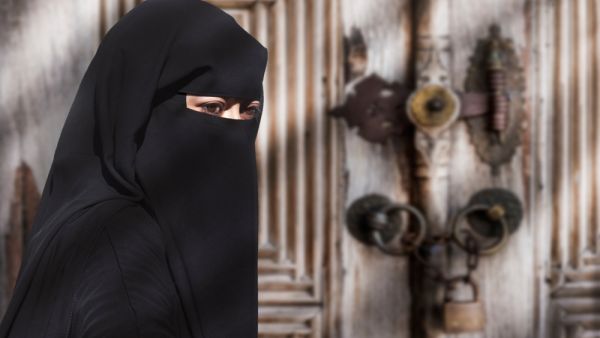By Ewelina Lepionko
As Afghanistan falls to the Taliban, women fear that the freedoms won since 2001 will be crushed. Will the times of living under the veil come back? Dozens and dozens of blue burqas hang like specters from hooks on the wall.
In recent years, burqas and niqabs have largely disappeared from the streets of Kabul. However, the new order by the Taliban will, sadly, bring them back in the streets of Kabul.
Taliban have allowed women to continue studying but under a new law.
Women attending private Afghan universities must wear an abaya robe and niqab covering most of the face, the Taliban have ordered, and classes must be segregated by sex -- or at least divided by a curtain.
Taliban order university women to wear face-covering niqabhttps://t.co/vLoeciAvdW
— The New Arab (@The_NewArab) September 5, 2021
There was no order for women to wear the all-enveloping burqa in the new regulations, but the niqab effectively covers most of the face anyway, leaving just the eyes exposed.
After the fall of the Taliban, many women continued to choose to cover under burqa or niqab in adherence to religious and traditional beliefs. But it was rejected by millions of others women across the country what became a symbol of a new dawn for the country’s women, who were able to dictate what they wore for themselves again.
“Universities are obliged to recruit female teachers for female students based on their facilities. If it is not possible to hire female teachers, then colleges should try to hire old men’s teachers who have good behavior", the decree states.
"Practically, it is a difficult plan — we don't have enough female instructors or classes to segregate the girls," said a university professor, adding, "but the fact that they are allowing girls to go to schools and universities is a big positive step".
— Dawn.com (@dawn_com) September 5, 2021
https://t.co/EhsL6sEAhb
The decree applies to private colleges and universities, which have mushroomed since the Taliban's first rule ended in 2001.
While women now have to study separately, they also have to finish their lesson five minutes earlier than men to prevent them from interfering outside.
"Practically, it is a difficult plan -- we don't have enough female instructors or classes to segregate the girls. But the fact that they are allowing girls to go to schools and universities is a big positive step," a university professor told AFP.
They will then have to stay in waiting rooms until their male colleagues have left the building, according to the decree from the Taliban’s Ministry of Higher Education.
Now the unstoppable advance of the Taliban has once again seen the burqa pulled out of dusty storerooms and cupboards by women who remember life under the militants’ rule.
Taliban order university women to wear face-covering niqab https://t.co/v26x5A937x
— TOI World News (@TOIWorld) September 5, 2021
Women don’t want to hide behind a curtain-like cloth. If they wear them, it means that they have accepted the Taliban’s government. They don't want to give them the right to control them. Wearing a veil is the beginning of a kind of sentence as a prisoner. All women are afraid of losing the accomplishments they fought for so hard.








